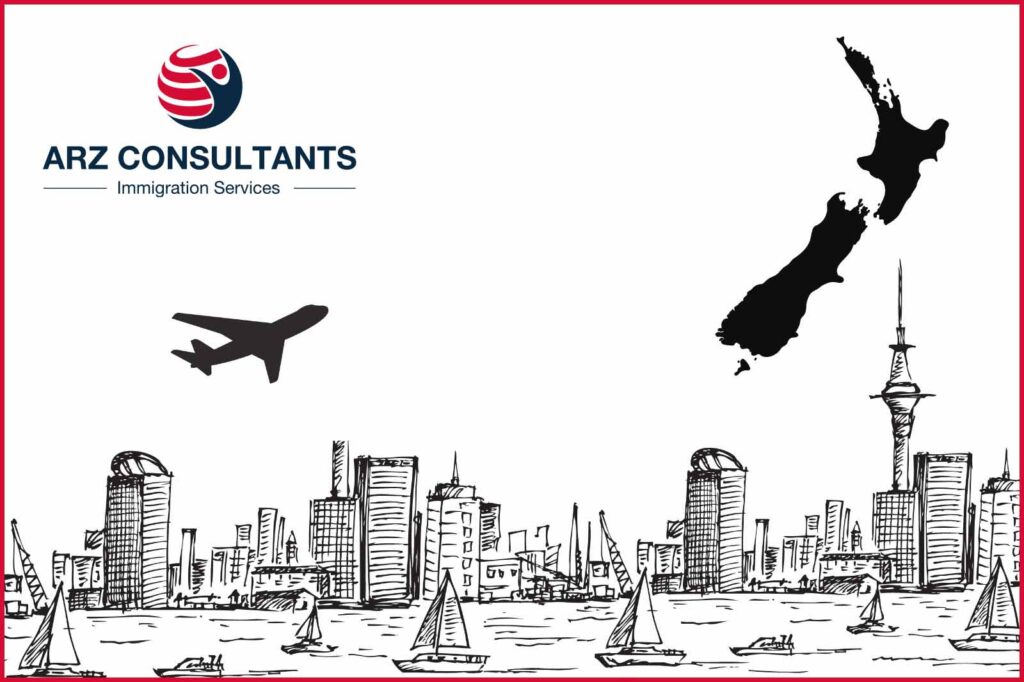
NewZealand
New Zealand Work Visas: An In-Depth Guide
New Zealand's stunning scenery, innovative economy, and high standard of living attract skilled professionals from around the globe. Whatever your profession, whether you are a tech expert, healthcare professional, or tradesperson, getting the right work visa is your key to moving and working in Aotearoa. This guide outlines the principal New Zealand work visa types, eligibility, application process, and routes to long-term residence, so you can confidently work your way through Immigration New Zealand's (INZ) system.
Types of New Zealand Work Visas
• Essential Skills Work Visa:
The Essential Skills Work Visa is the most prevalent path for non‑citizens with a legitimate job offer from a New Zealand employer. It is employer‑specific and issued by reference to the skill level of the occupation and general labor market conditions. Roles under ANZSCO skill levels 1–3 generally qualify, although applicants are subject to minimum qualifications, related experience, and English language requirements. Visa length is the same as the duration of your work contract, up to five years for highly skilled positions and less for lower‑skilled jobs.
• Accredited Employer Work Visa (AEWV):
Released in mid‑2022, the Accredited Employer Work Visa simplifies employer application for those employers who are accredited by INZ. Accredited employers showcase strong employment and recruitment procedures, which ensure quicker decisions regarding visas and flexibility. Applicants need to continue obtaining a job that has market-based salary levels as well as having to meet requirements for health, character, and skills. The holders of an AEWV are allowed to change positions between the same accrediting employer as well as the ability to add partners and dependents on application.
• Talent (Accredited Employer) Work Visa
Highly skilled workers with an offer from an accredited employer under the Talent (Accredited Employer) category can gain a two‑year visa—and may be able to move directly into residence under the Residence from Work policy. This stream targets industries with skill shortages, including IT, engineering, and health, and has salary levels at or above the median wage level.
• Long Term Skill Shortage List Work Visa
New Zealand has a Long Term Skill Shortage List (LTSSL) of occupations in which local supply is lacking. Candidates with job offers in these positions are eligible for work visas up to 30 months without the requirement of an LMIA‑type labor test. LTSSL visas are employer‑specific but permit residence applications after 24 months of employment, subject to other residence requirements.
• Work to Residence Visas:
New Zealand has two main pathways from work to residency:
Talent (Accredited Employer) Residence: If you have a Talent (Accredited Employer) Work Visa, are earning a minimum of NZD 79,560 per year (2025 level), and have been working continuously for 24 months, you may apply for residence.
Long Term Skill Shortage Residence: Those holding an LTSSL visa on NZD 27.50 per hour (or NZD 56,650 per year) in their qualifying position for 24 months can also move to residence.
Other Work Visa Categories
Working Holiday Visa: For citizens of partner countries between the ages of 18–30 (or 35 for a few), in which up to 12 months of work and travel can be undertaken.
Specific Purpose or Event Work Visa: For individuals traveling to New Zealand to engage in a specific purpose or event that cannot reasonably be done by a resident.
Spouse of a Work Visa Worker: Spouses of qualified work visa holders are eligible to apply for work in New Zealand if the main visa holder's job is listed on the LTSSL or under the Accredited Employer stream.
Eligibility Criteria
Although the specifics of each visa differ, all applicants must meet these basic requirements:
Valid Job Offer: A proper job offer from a New Zealand employer, including job title, responsibilities, salary, and terms.
Skill and Qualification Match: Shown by academic qualifications, professional registrations, and related work experience to ANZSCO codes.
Health and Character: Police certificates and medical examinations are required for most work visas, particularly for stays longer than 24 months.
English Language Ability: IELTS, OET, or equivalent test results may be needed if your occupation requires English communication.
Labour Market Test: In the case of Essential Skills visas outside the LTSSL and AEWV streams, employers have to advertise jobs locally for a minimum of four weeks prior to making overseas appointments.
Application Process
1.Preparing Your Employer and Job Offer
Prior to applying, have your employer be accredited (for AEWV streams) or capable of proving genuine attempts at recruitment. They need to give a clear offer of employment, ensuring that wages are at least the median wage (at present NZD 27.50/hour for AEWV and LTSSL) and that the job matches ANZSCO skill levels.
- • Submitting Your Online Application
All New Zealand work visa applications are lodged online via the Immigration New Zealand portal. You’ll complete the specific visa application form, upload your supporting documents—including job offer, qualifications, health and police clearances—and pay the application fee. For AEWV applications, employers will also upload accreditation evidence and job check results confirming compliance with labour market requirements.
- • Processing and Decision
Processing times depend on the type of visa and your country of application, usually between two and eight weeks. You can check the status of your application online. If INZ needs more information—like an interview or additional documentation—they will let you know through your online account. When approved, you get an eVisa confirmation, which you show when you arrive in New Zealand.
Required Documents
• A full application usually consists of:
• A valid passport with at least three months’ validity beyond your intended stay.
• The Immigration New Zealand reference number for your job check (Essential Skills) or employer accreditation (AEWV).
• Academic transcripts, professional licenses, and letters of reference verifying your experience.
• Recent passport‑style photographs meeting INZ specifications.
• Medical certificates from approved panel physicians if required by your visa stream.
• Police certificates from all countries where you’ve lived for 12 months or more in the past ten years.
• Evidence of relationship status (for partner visas) and proof of any dependents.
Processing Times and Fees
As of 2025, work visa costs vary from NZD 495 for Essential Skills visas to NZD 745 for AEWV applications; NZD 280 for Working Holiday applications. Some visa categories have premium processing (24‑hour turn‑around) at an extra fee. Up‑to‑date processing targets are posted on INZ's website, which you should check prior to applying. Do not forget to include funds for medical exams (about NZD 200–400) and police certificates (country variable fees).
Keeping Status and Extensions
To keep your legal status, submit to renew your visa at least four weeks prior to expiry. Extensions for Essential Skills holders need new job check evidence or a switch to an Accredited Employer or LTSSL stream. AEWV holders merely need to verify ongoing employment with their accredited employer. Working Holiday visas can also be renewed for an additional 12 months if you undertake stipulated seasonal work in specified areas.
Restoring Status
If your visa is due to expire and you have not applied for an extension, you are considered unlawfully in New Zealand. Immigration New Zealand does not have an onshore restoration process for most work visas; you will need to leave the country and apply offshore for a new visa. To prevent this, use calendar reminders and communicate regularly with your employer's immigration adviser.
Pathways to Permanent Residency
Skilled Migrant Category (SMC)
The SMC is New Zealand's main skilled residence pathway, it's on a points‑based system that allows you to gain points for age, qualifications, work experience, and a job offer in a skilled occupation. Achieving at least a minimum points target enables you to lodge an Expression of Interest; successful applicants are issued an Invitation to Apply for residence.
Residence from Work
Both LTSSL workers and Talent (Accredited Employer) employees can apply for residence after 24 months of ongoing employment in their qualifying occupations, subject to salary levels and usual health and character requirements.
Family and Partner Categories
New Zealand citizens or residents' partners and dependent children may be eligible for residence under the Family Category if they meet relationship requirements and sponsorship obligations.
Tips for a Smooth Application
Begin your preparation at least three months before your intended start date. Use INZ’s online checklists to confirm you’ve gathered every required document, and secure certified translations if any documents are not in English. Apply online for faster processing and real‑time tracking, and maintain open communication with your employer’s immigration advisor. For complex cases, such as intra‑company transfers or specialized skill streams, consider engaging a licensed immigration adviser to ensure compliance and expedite approval.
Conclusion
Obtaining a New Zealand work visa is your key to career development and life like no other in the land of the long white cloud. By learning about the differences between Essential Skills, Accredited Employer, and Talent‑to‑Residency streams, being eligible, and proceeding with the authorized application processes, you can successfully plan your migration. With positive status management and residence planning in advance, you will be in a good position to establish a rewarding career and life in New Zealand.



 By
By